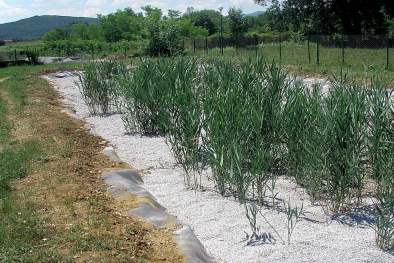Population in Central and Eastern Europe is more dispersed with smaller communities in comparison to the rest of Europe. For example in Slovakia over one million inhabitants, over 20% of the total population, live in small villages under 2000 people.
Rural areas are often left behind when it comes to improvements of local water infrastructure. Larger settlements and urban areas are currently priorities in order to fulfil deadlines set up by national and European legislation. Also, water companies have limited interest constructing new plants or extend existing networks because of infrastructure costs coupled by low future return of the investment.
Small communities usually operate on limited budges and therefore can not afford to fund water supply and sanitation projects on their own. They are not fully aware of innovative technologies that can replace traditional ways of cleaning waste water from households.
Solving wastewater problems keeps not only surface water away from pollution but it improves quality of groundwater, often used as drinking water by local people. Sanitation in rural areas is thus closely linked to public health and quality of environment.
The case study describes a project resulting in a pilot constructed wetland, the first of its kind in Bulgaria. It cleans up domestic waste water from toilet, laundry and kitchen for around 80 children and personnel at orphanage for children with disabilities in Vidrare. In the past, polluted water was discharged untreated directly into a local stream.
The project was launched in 2008 in Vidrare village, part of Pravets town. Pravets is a town in central western Bulgaria, located approximately 60 km from the capital Sofia. It has over 5000 inhabitants.
Women in Europe for a Common Future and ECOWorld 2007 coordinated the project with a financial support from German Federal Environmental Foundation (DBU). Otterwasser (Lubeck/Germany) and ECO project (Bulgaria) were in charge of planning and design of the constructed wetland.
It took seven months to build the plant, from October 2010 until April 2011, with a total budget 45,000 EUR. However, prior to the construction works, consultations with local stakeholders – municipality, local community organizations and citizens, were held to provide more information about the project. GWP Bulgaria participated in the discussions and disseminated results of the project in national "Water Affairs" magazine.
The constructed wetland proved to be a workable, cost efficient technology option for cleaning waste water from households. The pilot plant Vidrare now serves as a demonstration site that can be followed by other villages and towns in Bulgaria. Regular maintenance is crucial to ensure smooth operation and required cleaning effect. Personnel from orphanage were therefore assigned and trained how to run the constructed wetland.
Photo credit: Bistra Mihaylova
